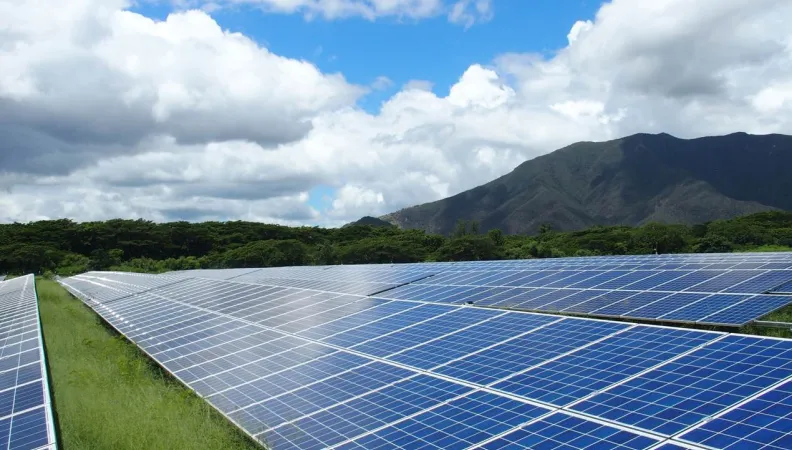Share the page
First solar power plant on customary land
Project


-
Project start date
-
Status
Completed
-
Project duration
-
20 years
-
AFD financing amount
-
CFP Franc 370000000
-
Country and region
-
Location
-
Témala
-
Type of financing
-
Beneficiaries
-
Hélio Témala (Quadran)
AFD is cofinancing the Témala solar power plant to allow cleaner energy to be generated. 12,000 photovoltaic panels will be installed, with a capacity to produce electricity for the equivalent of 1,500 households.
Context
New Caledonia has a unique natural heritage, but its per capita greenhouse gas emissions are among the highest in the world. The energy sector is marked by a strong dependence on imported fossil fuels (coal and heavy fuel oil imported from Australia and New Zealand). In view of this, in mid-2016, the Congress of New Caledonia approved an Energy Transition Plan (STENC), which sets out the directions for the energy policy for the next 20 years.
One of the major areas of this public policy concerns the increase in the share of renewable energies in order to make the energy mix more balanced. It is in this context that in late 2016, AFD supported QUADRAN, the French leader in green energies, which has been operating in New Caledonia since 2002.
Description
The project involves building and operating a solar power plant with a capacity of 3.2 MWc in the North Province, in Temala, in the municipality of Voh. The power plant is the first on customary land in the Territory. It was commissioned at the end of March 2017. It comprises 12,000 solar panels and will provide an electricity supply equivalent to 1,500 households. The energy produced will be sold via a long-term power purchase agreement to Enercal, a semi-public company majority owned by New Caledonia.
A similar project has also been financed at the same time in Boulouparis in the South Province. It is New Caledonia’s largest photovoltaic power plant and will provide an electricity supply equivalent to 5,400 households. All the materials selected for the facilities are recyclable, their lifespan is in line with the project, and the facilities installed are fully reversible. All the equipment which will be installed will be dismantled at the end of the operating period.
Impacts
- Contribution to meeting national and international objectives for reducing greenhouse gas emissions;
- Local energy production.


